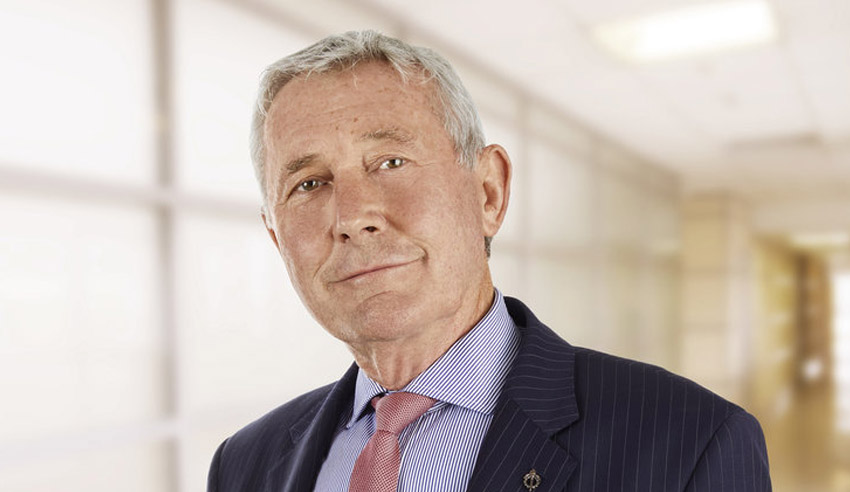The Human Rights Law Centre has called on the Commonwealth DPP to drop its prosecutions of whistleblowers Bernard Collaery and Witness K, as the case returned to the ACT Court of Appeal on Monday.

Earlier this month, leading human rights lawyer Geoffrey Robertson criticised the federal government for its “monstrous” decision to prosecute Bernard Collaery and Witness K entirely behind closed doors for doing nothing more, he argued, than telling the truth, while those responsible for the Timor-Leste bugging continue to go free.
The cases against the pair relate to allegations that Australian spies bugged the cabinet office of Timor-Leste during oil and gas negotiations in the early 2000s.
Mr Collaery is charged with offences relating to the alleged disclosure of information to the Timor-Leste government and the Australian media, and his former client, an ex-intelligence officer known as Witness K, is set to plead guilty to a summary offence.
Mr Collaery has spoken extensively with Lawyers Weekly about the prosecutions against him and Witness K, appearing on The Lawyers Weekly Show to discuss why he is facing conspiracy charges and then again to reflect more broadly on threats to the rule of law in Australia.
HRLC senior lawyer Kieran Pender submitted that whistleblowers such as Mr Collaery and Witness K should be protected rather than prosecuted.
“What our government did in Timor-Leste was wrong and unlawful under international law. The right thing to do would be to apologise to the Timorese people. Instead, the Morrison Government is refusing to admit these misdeeds and prosecuting those who spoke up,” he argued.
“There is no public interest in prosecuting Bernard Collaery and Witness K, who did the right thing by exposing wrongdoing. The Commonwealth Director of Public Prosecutions has the power to discontinue a prosecution at any time. They should exercise that power.”
The Attorney-General’s Department has invoked the NSI Act – which requires the court to give “greatest weight” to the Attorney-General’s views about the national security impact of a case, overriding the important principle of open justice – in the cases against the pair, so as to ensure that the proceedings are heard behind closed doors.
“The Attorney-General’s use of secrecy in this case is entirely undemocratic: it enables the government to concede in closed court that Australia spied on Timor-Leste while continuing to refuse to admit this publicly. The NSI Act should be reformed to better safeguard the principles of openness and transparency that are at the heart of our judicial system,” Mr Pender said.
The comments come as defence whistleblower David McBride and Australian Taxation Office whistleblower Richard Boyle also currently face prosecution for speaking up about wrongdoing. Simultaneously, the government has been “sitting on reform” to federal whistleblowing law, he added, with the Public Interest Disclosure Act 2013 sitting idle for five years.
“The Bernard Collaery and Witness K cases are part of a broader trend. Australian whistleblowers are suffering – and that has a profound democratic cost,” he surmised.
“A transparent Australia, where people speak up about wrongdoing, is a better Australia. The PID Act should be urgently overhauled to empower everyday Australians to feel safe and supported when they do the right thing and call out wrongdoing.”
In February of this year, Justice John Burns criticised the federal government and labelled its attempts to block Mr Collaery from engaging barrister Bret Walker as his new advocate “unfair” and “disturbing”.
When senator Michaelia Cash officially took over from Christian Porter as Attorney-General, there was hope from the ACT Bar Association that the federal government might withdraw its prosecutions of the pair.
Are you an emerging legal professional and/or law student keen to stand out from the pack? Lawyers Weekly's career Expo & Emerging Leaders Summit will connect you with Australia's top companies and leading educators to help you secure the perfect role. The free-to-attend live-stream event is designed to arm you with the tools and strategies to succeed in the current market and is being held across three action-packed days over 8,9 and 10 June. Click here to find out what you'll gain from attending and head to the official site to register now!

Jerome Doraisamy is the managing editor of professional services (including Lawyers Weekly, HR Leader, Accountants Daily, and Accounting Times). He is also the author of The Wellness Doctrines book series, an admitted solicitor in New South Wales, and a board director of the Minds Count Foundation.
You can email Jerome at: